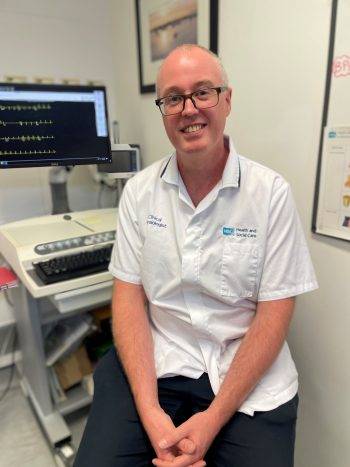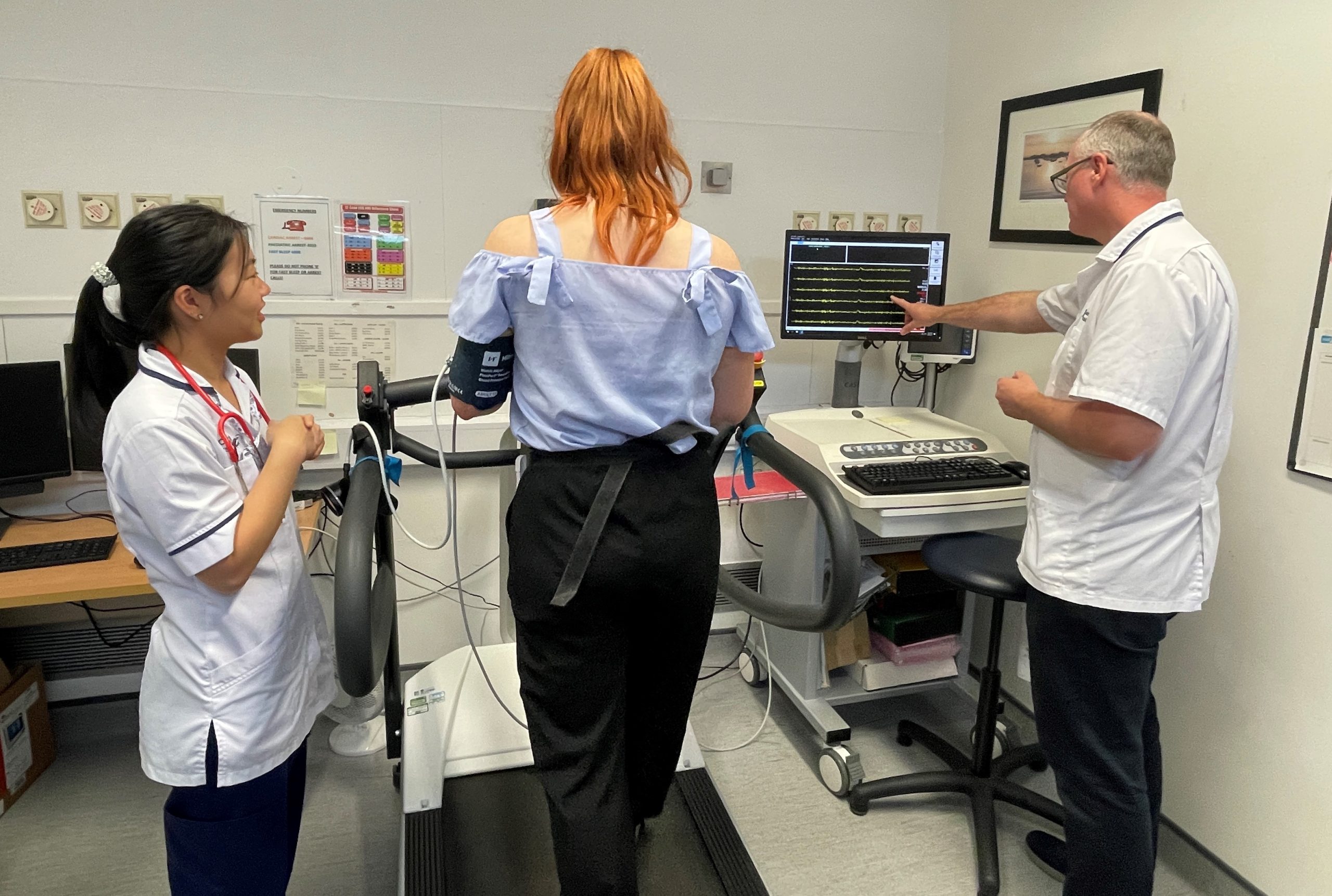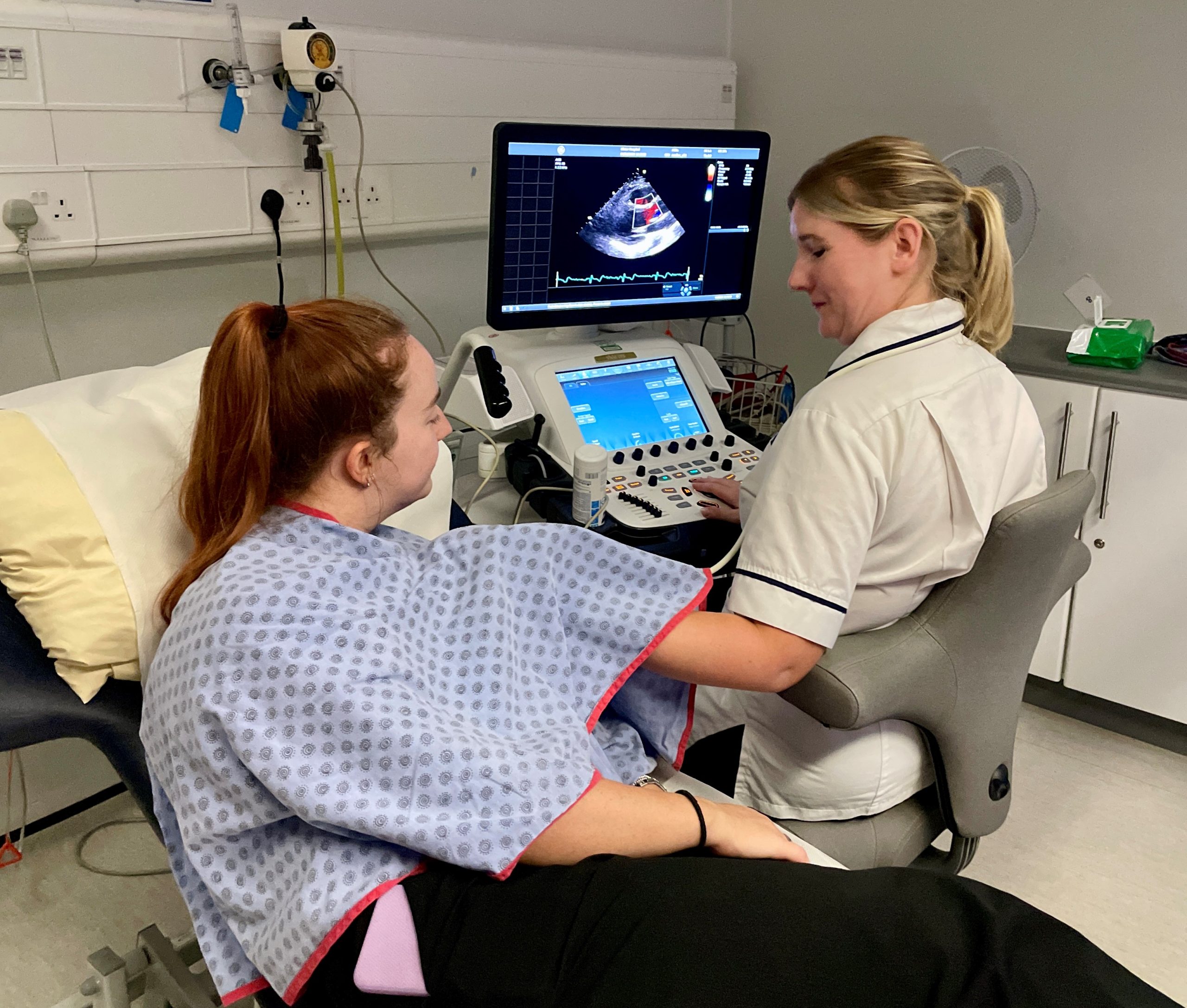
Sudden cardiac death remains a major concern across the UK and Northern Ireland and raising awareness of arrhythmias is a vital part of preventing avoidable deaths. As part of World Heart Rhythm Week, Cardiac Physiologists across the South Eastern Trust are raising awareness of cardiac arrhythmias, abnormal heart rhythms which can pose serious health risks if left undetected.
Senior Chief Cardiac Physiologist, David Moorhead explained, “Arrhythmia is an umbrella term for an abnormal heart rhythm. The most common cardiac arrhythmia is Atrial Fibrillation (AF), a condition that requires medical attention. People with AF are five times more likely to have a stroke. Detecting AF early and starting treatment promptly is key to reducing that risk.
“Others arrhythmias include ectopic beats, which can feel like your heart has skipped a beat or added an extra one. Symptoms may include a fluttering feeling in your chest, an irregular heartbeat, a sensation in your throat, or your heart slowing down unexpectedly. These may come and go or persist and if you notice anything unusual, it is vital to get checked out.”
In the South Eastern Trust, Cardiac Physiologists carry out a range of diagnostic tests including:
- Electrocardiograms (ECG) to measure electrical activity in the heart
- Cardiac monitors worn over 24, 48, or 72 hours to capture heart rhythms continuously
- Week-long wearable monitors that auto-detect arrhythmias or allow patients to record symptoms manually
- Implantable loop recorders, small devices inserted under the skin, which can monitor heart rhythms for up to four years and transmit data via smartphones or home-based technology
- Stress tests and Echocardiograms to assess heart rhythm during activity and examine heart structure and blood flow
David added, “Technology is playing an increasing role in early detection. Heart rhythm algorithms in smartphones and smartwatches are becoming more reliable in spotting irregularities. If your device flags something unusual, do not ignore it. If you are experiencing symptoms of an irregular heartbeat, it is important to contact your GP, who can arrange the appropriate tests and refer you for specialist assessment if needed.”





